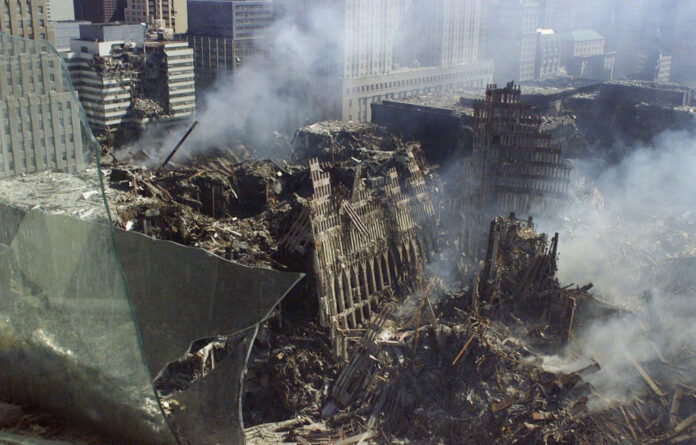Author: Stephen Walt
Affiliation: Harvard’s Kennedy School of Government
Organization/Publisher: Foreign Policy
Date/Place: September 6, 2021/ USA
Type of Literature: Argument
Word Count: 1868
Link: https://foreignpolicy.com/2021/09/06/HOW-9-11-WILL-BE-REMEMBERED-A-CENTURY-LATER/
Keywords: The 9/11 Attacks, US decline, China’s Rise, Risks of Climate Change, Three Scenarios, and US Status in 2100
Brief:
Stephen Walt places the 9/11 attacks in a broader geopolitical context, asking how Americans and the world will see the attacks and their consequences—on the great power politics in particular— after a century. There are three scenarios the author imagines, believing that the meaning associated with 9/11 depends on what will happen over the next few decades. In the first scenario, the author imagines that China’s economic rise will continue to grow. We will face a moment similar to the American unipolar moment after the end of the Cold War, and the next eighty years will be known as the “Chinese Century”. China will exercise de facto hegemony in its immediate neighborhood, control key technologies, have a greater influence than any other power on what other countries do, have the loudest voice in most international institutions, and the greatest ability to shape most international interactions. If this scenario occurs, 9/11 would be seen as a decisive event that accelerated America’s decline because of the tragic ways that Washington’s leaders chose in response to the attacks, it would be said that it was an enormous gift to Beijing. This response has caused huge costs, including $8 trillion that could have been spent on maximizing the components of internal national strength. Instead, the US distracted itself from a set of strategic interests such as the remarkable rise of China, in addition to ignoring a number of deep domestic negative impacts within the US, such as growing polarization, xenophobia, fear of people of color, reinforcing the white supremacists, officials’ adoption of undemocratic methods such as torture, and lying about sensitive issues without being held accountable as happened with the case of the Iraqi weapons of mass destruction. This scenario also assumes that the US has failed to learn the right lessons from the past twenty years. If this scenario happens, it will be easy for China to bypass the US, and “if 9/11 is not seen as the death knell of American greatness, it will certainly be viewed as a catalytic moment that hastened its decline.” This first scenario is not inevitable.
The second one assumes what the author calls the “American Renaissance,” in which the US will be facing a brighter future and will act in a more organized and effective manner. This scenario acknowledges enduring American strengths that Americans tend to forget in the midst of their wounds. America’s population will continue to grow and the US economy will remain an engine of innovation in many key sectors. The scenario predicts that the US GDP will trail China by midcentury, but it will regain first place by 2100 thanks to the favorable demographics, as well as America’s protected ocean geography provides a more favorable geopolitical environment than all other potential great powers, including China. Moreover, the scenario assumes that Washington will be able to carry out progressive domestic reforms with which the ailing domestic situation will eventually recede, and the US grand strategy will return to the realist principles that have guided it so successfully for most of the nation’s history, after being convinced of the futility of seeking liberal hegemony. Meanwhile, this scenario envisions China faltering due to its unfavorable demography and geography, and the coordinated global opposition against it due to its bare-knuckle approach to diplomacy. Also, China may commit huge mistakes similar to those made by the United States after 9/11 and end up squandering its resources in a futile war. Even if this does not happen, China’s rate of economic growth is slowing and it will force Beijing to focus attention on containing social discontent. Therefore, by 2100, 9/11 will be seen as an isolated tragedy that did not permanently damage America’s standing in the world.
There is a third scenario in which 9/11 and its aftermath will seem to future generations as a simple distraction if the frightening predictions of the climate change crisis are correct, which will affect human lives and make people interested only in the pursuit of survival—people will have no time to think of terrorist attacks the world saw before the pre-dystopian era. 9/11 will most likely be seen as one of the factors that prevented the US and many countries from taking decisive action when they should have done so. In sum, what 9/11 means to future generations depends on what the United States and others do from this day forward. Here, the author expresses his doubt that Washington will make the right choices.
By: Djallel Khechib, CIGA Senior Research Associate




